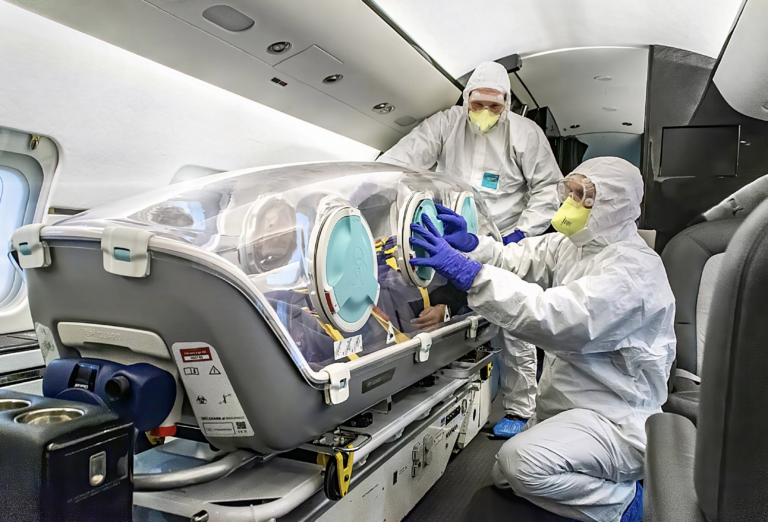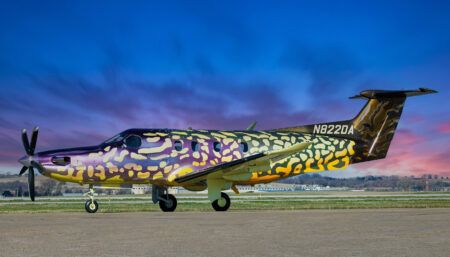During this near-unprecedented pandemic, the UK is rightly recognising front-line staff in the NHS and beginning to grasp the critical importance of supply chains. A key success factor is distribution, where aviation in general and business aviation in particular makes a vital but often overlooked contribution. Marc Bailey, CEO of the British Business General Aviation Association considers its role.
In this current situation, grappling with the pandemic, we are rightly recognising our wonderful front-line staff in the NHS and beginning to understand the critical importance of supply chains. A key success factor is distribution, where aviation in general and business aviation in particular is playing a vital, but often overlooked role.
In lockdown there are very few flights operating in scheduled aviation – probably around 10% of a typical airline’s schedule – but those that are flying are supporting all manner of critical flights.
Even less well recognised is the key role being played by business aviation, which is continuing to deliver vital transportation services, cargo, medical and repatriation flights, as part of the essential critical infrastructure in the UK & Ireland. Services at all the main bases throughout the UK & Ireland have remained operational day and night, as the sector recognises its responsibilities to support the UK and our local communities and deliver vital support when it is most needed.
At London Biggin Hill Airport, which remains open, flights these past few weeks have included cargo operators bringing in essential equipment and medical supplies, including PPE; flying technicians to manufacture ventilators and (with its close proximity to the NHS Nightingale hospital) handling the arrival of an Army Wildcat surveying the airport for potential COVID-19 operations.
At London Stansted Airport, which has five FBOs, flights have been operating primarily for the military, ferrying medical supplies and technical parts globally. At London Luton Airport too, there has also been a large number of repatriation flights for both Government and stranded members of the public, with the FBOs at both locations working flexibly to accommodate customer needs. At Luton personnel and transport capacity released from normal duties are being put to good use in the local community, helping with food deliveries and providing vehicles and volunteers to support the local charity ‘Signposts’ helping the homeless.
We have seen private ferry flights supporting both medical supplies and staff around the continent to support key areas as the outbreak peaks in different areas. Among them was charter company Titan Airways’ departure to St Helena Airport, Ascension Island, one of the most remote islands in the world, carrying COVID-19 test kits, ventilators and 2.5 tons of supplies. Medical flights have seen business aircraft transporting patients in Epishuttle isolation pods – a stellar example of how our industry is supporting the work of our healthcare professionals.
Business jet to air ambulance
FAI rent-a-jet AG is supporting critical air ambulance missions with its executive charter fleet of Bombardier Challenger 604 business jets. It is carrying portable self-contained isolation units, Epi-Shuttle, safely transporting infected patients without any risk for the flight or medical crew. All medevac missions are accompanied by a trained dedicated medical team, for pre-flight temperature screening, and the availability of medical/nursing care in flight as required.
Normal medical evacuation work also continues to support critical transfers of patients around the available network of medical facilities as dictated by the medical emergency. Southampton Airport remains a key airport for medical flights from the Channel Islands. Last Friday its FBO handled a number of medical repatriation flights. These were not Covid related, but the patients needed to be transferred to a more specialist hospital in SOU.
Another example of resilience was the repositioning of 25 nurses from the UK from Stansted to support the outbreak in Gibraltar. This could not have been achieved without the use of a business jet operating out of an FBO.
There are similar stories at other bases:
Our bases in Scotland have been serving COVID-19 medical flights from the Scottish Islands & Highlands as well as supporting military and coast guard flights in Scotland too. Military RAF Puma Helicopters / BAE 146 / Airbus A400M / C27J Spartan – medical and training flights (ready for the newly opened NHS Nightingale Hospital at SSE Hydro Scottish conference centre.)
In Dublin one of our FBO’s handled an Airbus A330 that brought in for essential medical supplies for Ireland, whilst Birmingham Airport sits ready for any NHS Nightingale NEC medical flights.
“We urge mainstream media to highlight the positive actions undertaken by our hard working sector through its operators, FBO’s and airport networks at this unprecedented time,” highlighted Marc Bailey, whose Association looks after the interest of 180 UK companies engaged in business and general aviation. “Not only are our members’ current support vital to the UK, but looking forward as we ease our way through the pandemic, it is vital that we are ready to offer all the channels we can to show that the UK is open for business. Come the rebound, it will be business aviation, more nimble and agile, that will recover first.”
Let’s be positive about business aviation and thank those organisations for all they do too.
Signature Flight Support, Inflite The Jet Centre, Harrods Aviation, Universal Aviation and London Biggin Hill Airport contributed to this.





